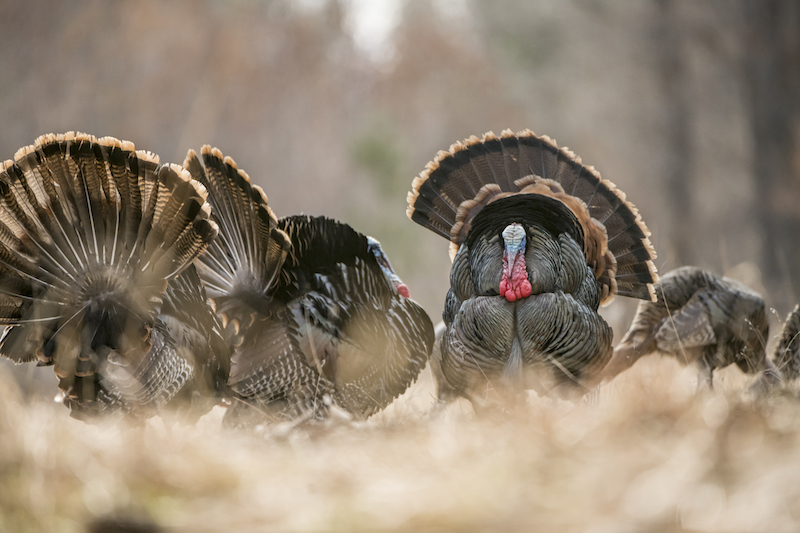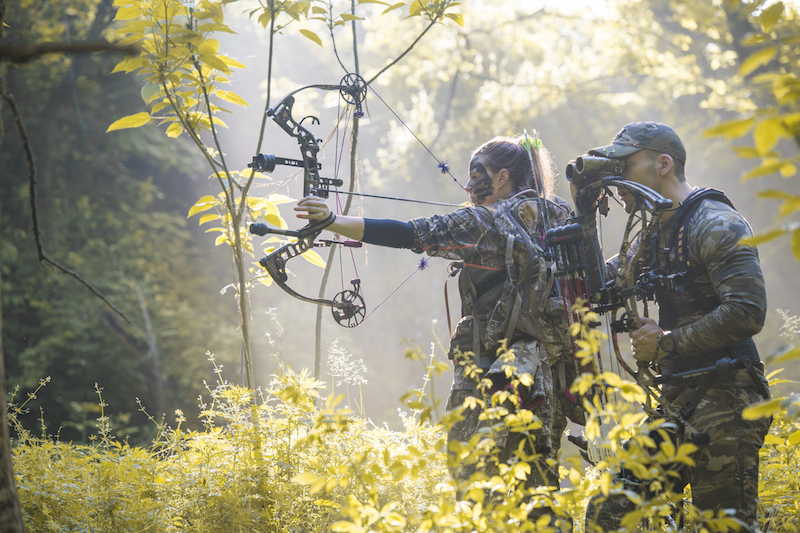Hunters often face this question: Why do you hunt?
Explaining your rationale for taking an animal’s life is difficult. Everyone won’t agree with your reasons, but it’s important to share your viewpoint with nonhunters.
Most nonhunters support hunting that provides wild, healthy food from self-sustaining wildlife populations. Wild game is delicious and nutritious, which are great facts to share when asked why you hunt. Hunters know where their meat comes from and, in many cases, they package and process it themselves. You cannot make that claim when buying meat at a grocery store. Hunters who harvest and process meat control the sourcing of their food. That control starts with field dressing the bird or mammal, processing it, and eventually serving it.

Hunting can actually help a wildlife population with the money it generates. Photo Credit: John Hafner
Meanwhile, your efforts are contributing to conservation. When buying a hunting license, you’re aiding wildlife conservation and funding resources shared by all, like public land. That walking trail at your favorite public property doesn’t mow itself or remove trees that fall across its path. The trail is likely mowed and maintained by a wildlife agency employee whose salary is largely funded by hunting-license fees. Without that money, the property would not be managed, and would soon attract few hunters or nonhunters.
License money also pays for wildlife restoration and habitat projects. Fifty years ago wild turkeys were absent across entire regions where they’re now abundant. Funding from hunters, when matched with incredible efforts by wildlife agencies and the National Wild Turkey Federation, produced one of the greatest reintroductions in modern wildlife management. Without hunters’ contribution, many landscapes today would remain void of turkeys.
Hunting isn’t for everyone, but most people love watching sunrises, breathing fresh autumn air, and surrounding themselves in nature. Hunts rarely end in filled tag, but the overall outdoors experience keeps us coming back. The camaraderie of friends helps us escape our fast-paced daily routines, and reminds us that harvesting an animal is a minuscule part of hunting.
When discussing the hunting lifestyle, never forget you’re representing the entire hunting community. Be polite and courteous. Not everyone will agree with you, and hunting isn’t for everyone. You might not change someone’s mind, but you can provide them factual information and be a conscientious voice of reason. Converting nonhunters to hunters can take years, so stay positive and patient while answering questions. Many people are simply curious about hunting, so answer them with courtesy and respect.

You may not change a non-hunters mind Immediately, but they’ll walk away with the facts. Photo Credit: ATA
Realize, too, that we’re losing hunters faster than we’re recruiting them. It’s never been more important for hunters to portray themselves positively. These conversations can be tough, but don’t avoid them. They’re good opportunities to provide accurate, thoughtful perspectives. We’re stewards of the hunting lifestyle. By representing ourselves intelligently, we can inform, educate and introduce people to hunting for years to come.